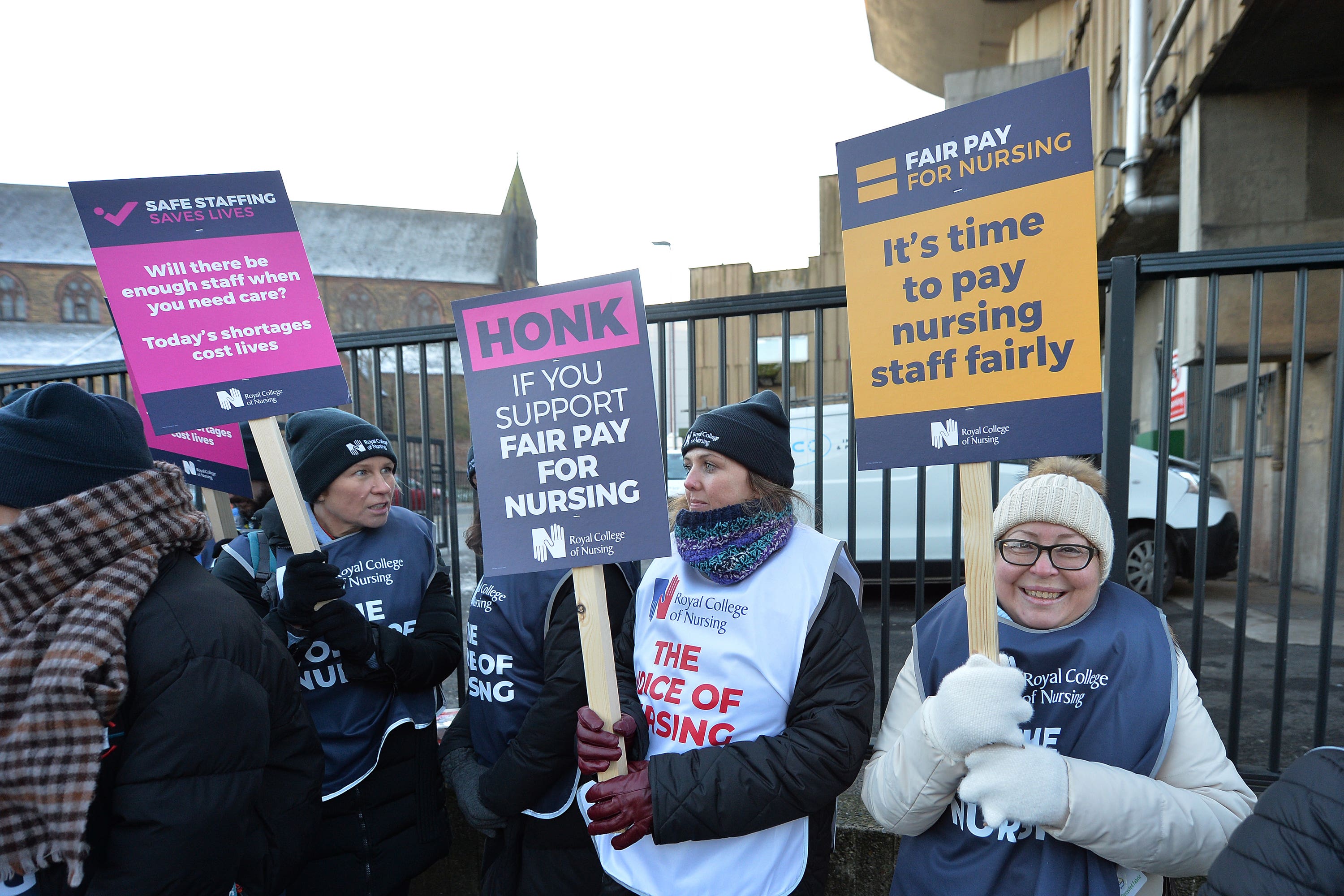Wave of industrial action to continue in coming days with nurses on strike
GMB leaders will meet on Monday to decide whether to call more strikes among their ambulance members because of a lack of progress in talks.

Your support helps us to tell the story
From reproductive rights to climate change to Big Tech, The Independent is on the ground when the story is developing. Whether it's investigating the financials of Elon Musk's pro-Trump PAC or producing our latest documentary, 'The A Word', which shines a light on the American women fighting for reproductive rights, we know how important it is to parse out the facts from the messaging.
At such a critical moment in US history, we need reporters on the ground. Your donation allows us to keep sending journalists to speak to both sides of the story.
The Independent is trusted by Americans across the entire political spectrum. And unlike many other quality news outlets, we choose not to lock Americans out of our reporting and analysis with paywalls. We believe quality journalism should be available to everyone, paid for by those who can afford it.
Your support makes all the difference.The wave of industrial action which has swept across the country for months will continue this week and could escalate unless there is a breakthrough to bitter disputes over pay, jobs and conditions.
Members of the Royal College of Nursing (RCN) across England will walk out on Wednesday and Thursday and the union has warned that if progress is not made in negotiations by the end of January the next set of strikes will include all eligible members in England for the first time.
The Government continues to insist that pay claims are unaffordable and is sticking to its belief that wage rises should be decided by pay review bodies.
Health unions are refusing to submit any evidence to the NHS pay review body for the 2023/24 pay rise until the current dispute is resolved.
GMB leaders will meet on Monday to decide whether to call more strikes among their ambulance members because of the lack of progress in talks.
Any decision is likely to be announced later in the week.
Meanwhile the National Education Union (NEU) and school leaders union NAHT will announce the result of ballots for strikes over pay.
The NEU announcement will be made on Monday, and the union will have to give two weeks notice of any industrial action.
A ballot of members of the NASUWT teachers union last week failed to reach the 50% turnout threshold, although nine in 10 of those who did vote backed strikes.
A strike will be held on Wednesday by Unison members at the Environment Agency in a dispute over pay.
Talks will continue between rail unions and train operators in a fresh attempt to resolve the long-running row which has led to a series of strikes since last summer.
Both sides say they are working towards a revised offer.
The Public and Commercial Services union (PCS) is pressing ahead with a strike on February 1 by 100,000 civil servants which will have an impact on governments, driving test centres, museums, ports and airports.
The TUC is organising a series of protests on February 1 against the Government’s controversial proposed new law on strikes.
Planned legislation aimed at ensuring minimum levels of service during strikes will receive its Second Reading in Parliament on Monday.
A demonstration will be held outside Downing Street to protest against the Government’s move.
PCS members working as legal advisers and court associates in more than 80 courts across England and Wales are also to take further strike action in a long-running dispute about a case management system called Common Platform.
Around 300 PCS members will take action on January 21 and January 28.
PCS general secretary Mark Serwotka said: “As long as managers continue to ignore our members, our members will continue to resist the unworkable Common Platform system and fight for the integrity of the entire justice system.”